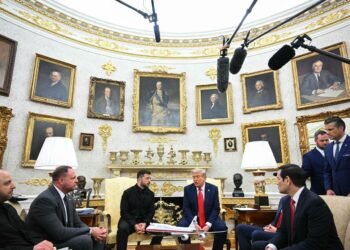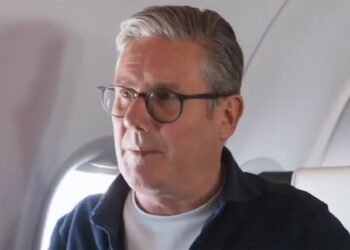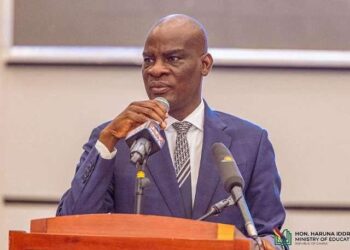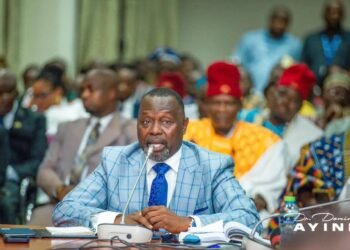The United Nations Development Programme (UNDP) has charged Ghana to form an integrated business support ecosystem to enable Micro, Small, and Medium-scale Enterprises (MSMEs) take full advantage of opportunities offered by African Continental Free Trade Area AfCFTA.
Dr Edward Ampratwum, Head of Inclusive Growth and Accountable Governance at UNDP, who made the call, noted business development services are one of the critical tools for the sustainability of Small and Medium-scale Enterprises (SMEs). According to him, there is a need for development services that provide platforms to unlock the enormous transformative potential of SMEs to power Africa and particularly, Ghana’s long-term prosperity.
Dr Ampratwum pointed out that most businesses lack relevant information on product entry requirements, as well as the processes and procedures to access the single African market. He indicated that the training would help shape and position MSMEs to compete favorably in the African markets.
Dr Ampratwum was speaking at a two-day training workshop on how to trade under the African Continental Free Trade Area (AfCFTA) for some selected women and youth led micro, small and medium scale businesses in Kumasi. The UNDP organized it in partnership with the Ghana National AfCFTA Coordinating Office. Among the topics discussed were business development services, access to finance, capacity building on good corporate governance and awareness creation to prevent radicalization, as well as energy and resource efficiency.
Focusing on Improving Internal Mechanisms
Dr. Fred Arthur, Head of the National AfCFTA Coordination Office, on his part, encouraged MSMEs to focus on improving their internal mechanisms to make the most of the agreement.
“Ghana’s dream to become a manufacturing hub of Africa can only be achieved with your active participation. Together, let us contribute to Ghana’s National Export Development Strategy which is to help transform Ghana’s economy from raw commodity export to a manufacturing industrial export-driven economy.”
Dr. Fred Arthur
Ms. Elizabeth Agyapong, a participant, commended the UNDP and AfCFTA Coordinating Office for initiating the training, and described the knowledge acquired as one that would help them to grab the opportunities of the single African market.
“Initially, I didn’t know how important it was for me to obtain the necessary certification for my products and business. I have a better understanding of the measures and right channels to go through to have my business and products registered in a less cumbersome process, as this is a prerequisite for trading under the AfCFTA.”
Ms. Elizabeth Agyapong
Mr. David Ahiale Rutherford, another beneficiary, disclosed that he was into the production of herbal medicines but never knew the processes to go through to export his products. “I am now aware of the steps I need to take to rebrand my business to take full advantage of the AfCFTA, I am so grateful for the opportunity”, he stated.
The UNDP aims at providing support to about 600 women and youth-led micro, small and medium-scale enterprises in six selected metropolitans, municipal, and district assemblies in the country. The beneficiary districts are Kumasi Metropolitan, Ketu South Municipal, Sefwi Wiawso Municipal, Jomoro Municipal, Sagnarigu District, and Kassena–Nankana West District Assemblies.
The program forms part of the UNDP’s efforts to support the government of Ghana’s Covid-19 recovery efforts. Representatives of the Business Advisory Centers (BACs) and Business Resource Centers (BRCs) of the six beneficiary district assemblies have already been trained to serve as focal persons to inform and sensitize MSMEs in their areas on AfCFTA opportunities and processes.
READ ALSO: GSE Stock Indexes Refuse to Yield Ground Amidst Substantial Share Depreciation of Unilever Ghana



















